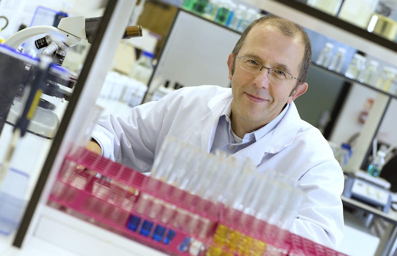 Cleanzine: your weekly cleaning and hygiene industry newsletter 18th April 2024 Issue no. 1110
Cleanzine: your weekly cleaning and hygiene industry newsletter 18th April 2024 Issue no. 1110
Your industry news - first
The original and best - for over 20 years!
We strongly recommend viewing Cleanzine full size in your web browser. Click our masthead above to visit our website version.
Three-phase testing crucial for scientifically validated results claims Genesis Biosciences
 Award-winning biosciences company Genesis Biosciences is calling for more transparency in the testing protocols that antimicrobial product suppliers use to support disinfectant claims.
Award-winning biosciences company Genesis Biosciences is calling for more transparency in the testing protocols that antimicrobial product suppliers use to support disinfectant claims.
There are many European standards already in place, with the most important being BS EN 14885:2015 ('Chemical disinfectants and antiseptics. Application of European Standards for chemical disinfectants and antiseptics'). This standard outlines that all disinfectants should be tested using a three phase method, where each successive phase simulates in-use conditions more closely.
Phase one methods are very simple tests generally used to screen for effectiveness of potential disinfectant active ingredients.
Phase two methods are further divided into step one and step two, which cover suspension tests and carrier tests for aqueous applications and hard surfaces respectively.
Phase three are field tests that represents the real-life conditions in which the antimicrobial formulation will be used. The field test is run over a number of weeks to confirm that the product is effective at reducing pathogen levels, and it is only after such testing that disinfectant's true capabilities can be assessed.
Each individual European disinfectant testing standard is identified by mention of the phase within its title, showing where it fits in the testing hierarchy.
For example, the very popular BS EN 1276:2009 is a quantitative suspension test for the evaluation of bactericidal activity of chemical disinfectants and antiseptics and is a phase 2, step 1 method which if used in isolation, may be suitable for claims for products applied in an aqueous system.
Instead of following EN 14885, many manufacturers in the washroom hygiene sector in particular rely on data from one test method, and often not one which reflects the performance of the product in the actual application. Manufacturers rely on the lack of awareness from end users about testing? methods and also the lack of control of efficacy claims in the UK during the transition to the EU wide Biocidal Products Regulations.
The role of a disinfectant is to reduce the levels of pathogens so that diseases and infections cannot manifest, however the number of antimicrobial products being sold on the market that lack scientific data to support disinfectant claims raises serious concerns about end-user protection in washroom facilities.
Through its Biosan antimicrobial product range, Genesis Biosciences provides protection to users of washrooms and feminine hygiene units through patented 'vapour technology' based on a natural ingredient.
The company's antimicrobial products are thoroughly tested using methods from all three phases of the EN14885 process. This ensures the products' disinfectant claims are scientifically verified with detailed test results.
By following the EN 14885 three-phase testing process, Genesis Biosciences can prove with absolute certainty that its products provide protection to washroom users, and the company is now calling on other antimicrobial suppliers to prove its disinfectant claims.
Dr Phil Caunt, the company's research and development specialist, says: "We believe that every antimicrobial disinfectant currently being sold within the washroom industry should pass the EN 14885 three-phase testing period. A thorough testing approach provides a full-set of scientifically verified data which creates transparency within the market.
"When it comes to washroom user protection there cannot be short-cuts. Choosing to use cheaper antimicrobial products that lack scientific results can put end-users at risk of infection. Quite simply, if suppliers cannot provide accurate, transparent data then there should be big questions against the disinfectant effectiveness."
T: +44 (0)29 2079 1185
W: www.genesisbiosciences.co.uk
30th June 2016







